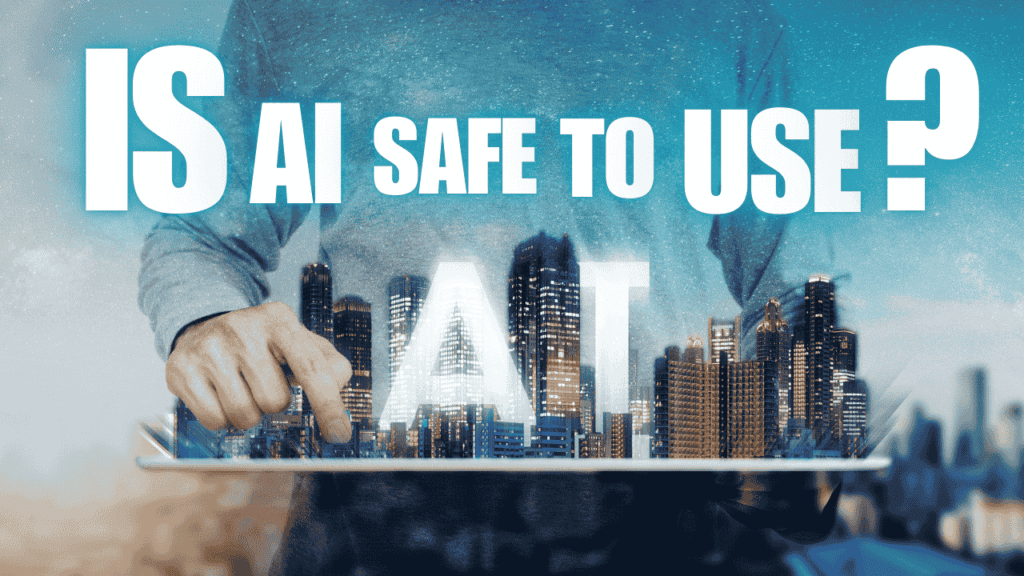
IS AI SAFE TO USE ?
Artificial Intelligence (AI) refers to the capability of machines, particularly computer systems, to perform tasks that typically require human intelligence. These tasks include learning from experience, understanding complex information, reasoning, problem-solving, and even simulating human-like decision-making processes.
In recent years, AI has seamlessly integrated into various facets of our daily lives, often in ways we might not immediately recognize. Here are some common applications:
Virtual Assistants:-

AI-powered virtual assistants, such as Siri, Alexa, and Google Assistant, help manage our schedules, set reminders, and answer queries, streamlining our daily routines.
Personalized Recommendations:-
Streaming services and online retailers utilize AI algorithms to analyze our preferences and suggest content or products tailored to our tastes, enhancing our user experience.
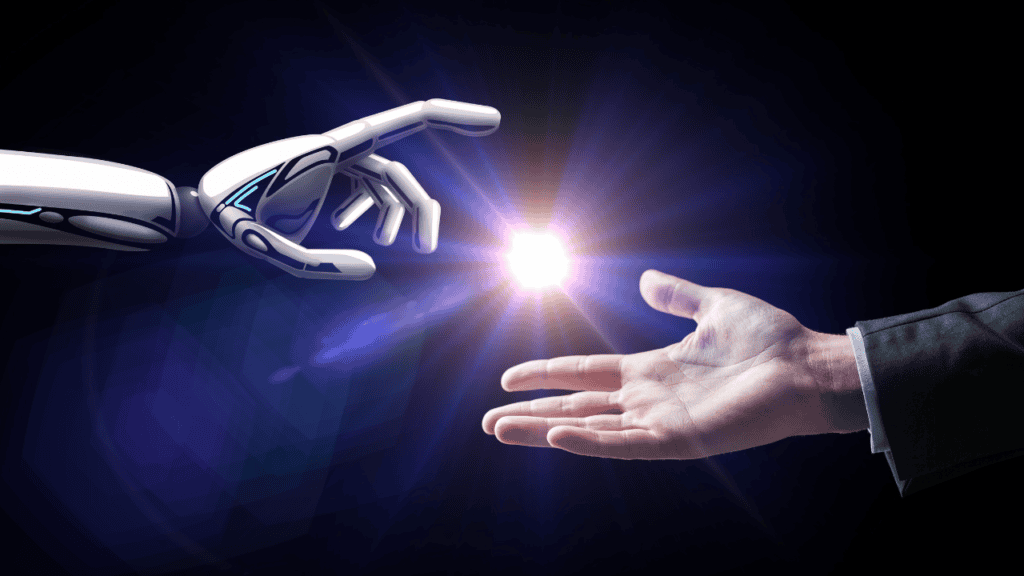
Healthcare Diagnostics:-
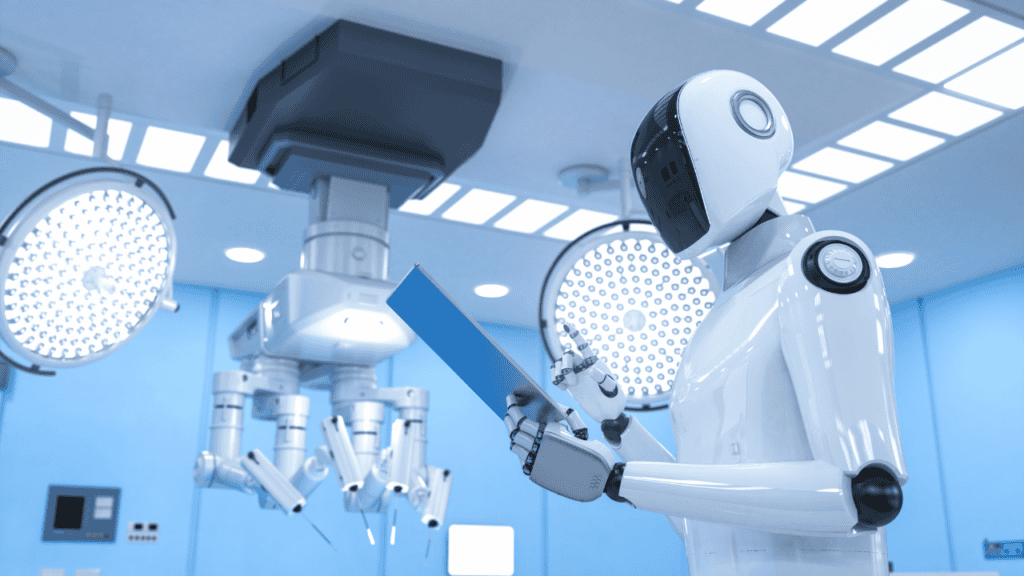
AI systems assist medical professionals by analyzing patient data to detect diseases early, recommend treatments, and even predict health risks, improving patient outcomes.
Autonomous Vehicles:-
Self-driving cars employ AI to navigate roads, interpret traffic signals, and make real-time decisions, aiming to enhance road safety and transportation efficiency.
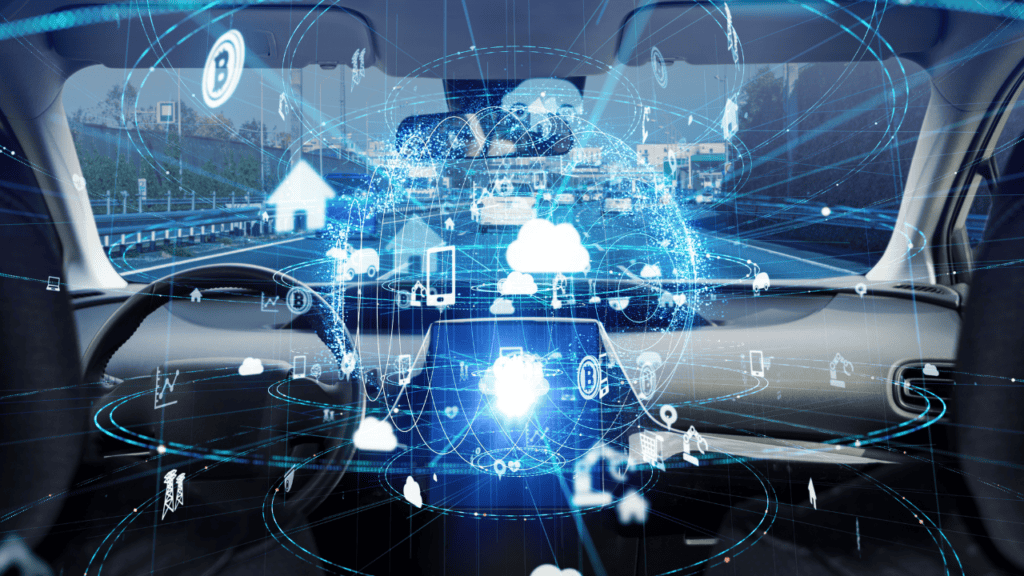
Smart Home Devices:-

AI-enabled devices, like thermostats and security systems, learn from our behaviors to optimize home environments, providing comfort and security.
Benefits of AI
Artificial Intelligence (AI) has become a transformative force across various sectors, offering numerous benefits that enhance efficiency, drive innovation, and personalize experiences. Here are some key advantages:-

1. Increased Efficiency and Automation
AI streamlines processes by automating repetitive tasks, allowing human workers to focus on more complex and creative aspects of their jobs. This leads to significant time savings and productivity boosts. For instance, intelligent automation combines AI and robotic process automation to improve business operations, resulting in cost reductions and streamlined workflows.

2. Revolutionizing Industries
AI is reshaping various industries by introducing innovative solutions and optimizing existing processes:
- Healthcare: AI assists in early disease detection, personalized treatments, and efficient patient management, enhancing overall healthcare delivery.
- Education: AI-powered tools provide personalized learning experiences, adapt to individual student needs, and offer intelligent tutoring systems, improving educational outcomes.
- Transportation: AI enhances route optimization, enables autonomous vehicles, and improves traffic management systems, leading to safer and more efficient transportation networks.

3. Personalized Experiences
AI enables the creation of personalized experiences by analyzing user data and preferences:
- Recommendation Systems: Platforms like Netflix and Amazon use AI algorithms to suggest content and products tailored to individual tastes, enhancing user satisfaction.
- Voice Assistants: AI-driven assistants like Siri and Alexa learn from user interactions to provide more accurate and personalized responses, improving user engagement.

4. Advancements in Scientific Research and Problem-Solving
AI accelerates scientific discovery by processing vast datasets and identifying patterns that may be overlooked by humans:
- Research and Development: AI contributes to the development of new materials, drugs, and technologies by predicting outcomes and optimizing experimental processes.
- Problem-Solving: AI systems tackle complex challenges in fields like climate modeling, genomics, and astrophysics, providing insights that drive progress and innovation.
Potential Risks and Challenges:-

a. Privacy Concerns
- Collection and Misuse of Personal Data: AI systems often require large datasets, which can include sensitive personal information. The collection, storage, and analysis of this data raise significant privacy issues, especially if data is used without consent or for purposes beyond its original intent. Unauthorized access or data breaches can lead to identity theft, financial loss, and erosion of trust in digital systems.
- Facial Recognition and Surveillance Issues: AI-powered facial recognition technology enables mass surveillance capabilities, potentially infringing on individual privacy rights. Concerns include the tracking of individuals without consent, misidentification, and the potential for such technologies to be used in ways that suppress freedoms or discriminate against certain groups.

b. Security Risks
- Vulnerability to Hacking and Cyberattacks: AI systems can be targets for cyberattacks, where malicious actors exploit vulnerabilities to manipulate outcomes or gain unauthorized access to sensitive information. The complexity of AI models can make it challenging to detect and mitigate these threats promptly, posing continuous risks to data integrity and system reliability.
- Deepfakes and Misinformation: AI technologies can create highly realistic but fake content, known as deepfakes, which can be used to spread misinformation, defraud individuals, or damage reputations. The proliferation of such content undermines trust in digital media and poses challenges for information verification.

c. Job Displacement
- Automation Replacing Human Workers in Various Industries: The adoption of AI and automation technologies can lead to the displacement of workers, particularly in roles involving routine or repetitive tasks. This shift necessitates workforce retraining and raises concerns about unemployment and economic inequality.
- Impact on Low-Skill and Repetitive Jobs: Jobs that involve manual, routine, or low-skill tasks are particularly susceptible to automation, potentially leading to significant employment challenges for individuals in these roles. This displacement can exacerbate socioeconomic disparities if not managed with appropriate policy interventions.
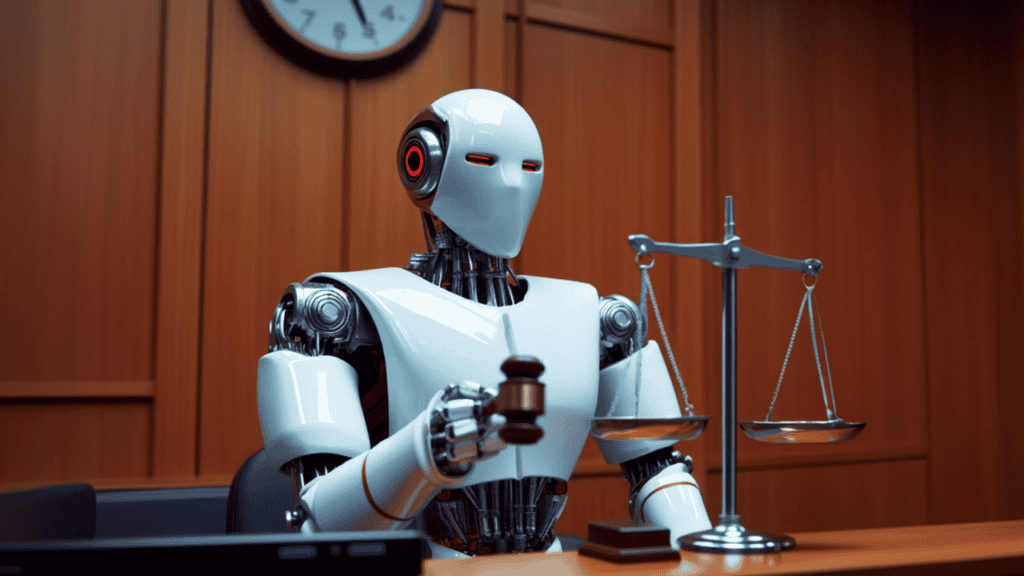
d. Bias and Discrimination
- AI Systems Inheriting Human Biases: AI models trained on historical data can inadvertently learn and perpetuate existing human biases present in the data. This can result in unfair treatment of individuals based on race, gender, or other characteristics, leading to discriminatory outcomes.
- Case Studies of Discrimination in Hiring, Policing, etc.: Instances have been documented where AI systems used in hiring processes favored certain demographics over others, or where predictive policing algorithms disproportionately targeted minority communities. These cases highlight the need for transparency and fairness in AI system design and implementation.
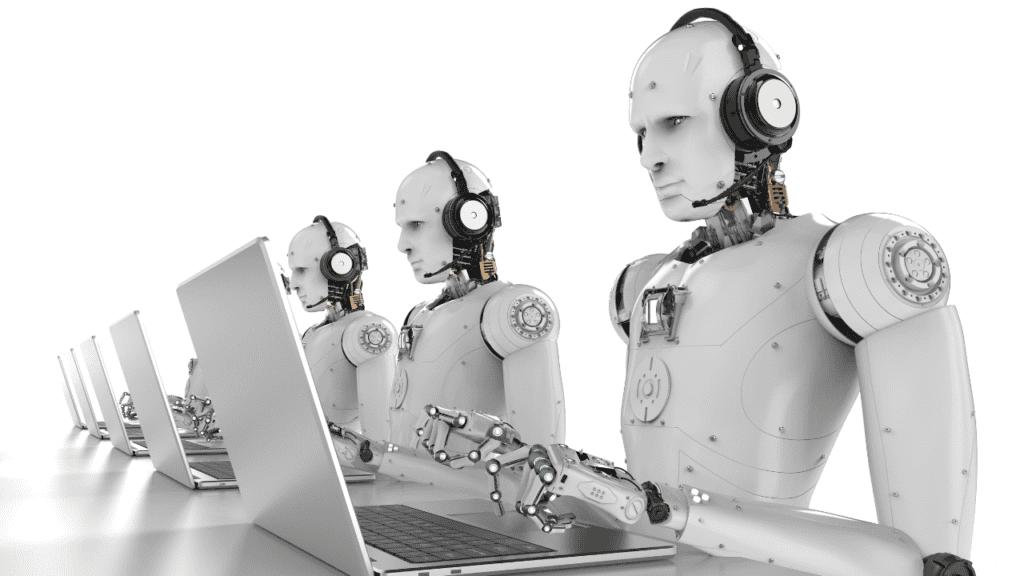
e. Dependence on AI
- Over-Reliance Reducing Human Critical Thinking: Excessive dependence on AI for decision-making can lead to a decline in human critical thinking and problem-solving skills. Relying solely on AI without human oversight may result in overlooked errors or ethical considerations.
- Risks if AI Systems Fail or Are Compromised: Failures or compromises in AI systems, whether due to technical errors or malicious attacks, can have significant consequences, especially in critical applications like healthcare, transportation, or financial services. Such incidents can disrupt services and erode trust in AI technologies.

f. Weaponization
- Use of AI in Autonomous Weapons and Warfare: The development of AI-driven autonomous weapons raises ethical and security concerns, including the potential for unintended engagements, escalation of conflicts, and challenges in accountability for actions taken by autonomous systems.
- Ethical Concerns: The deployment of AI in military applications prompts debates over the morality of delegating life-and-death decisions to machines, the potential for arms races, and the need for international regulations to govern the use of AI in warfare.
Your Attractive Heading



